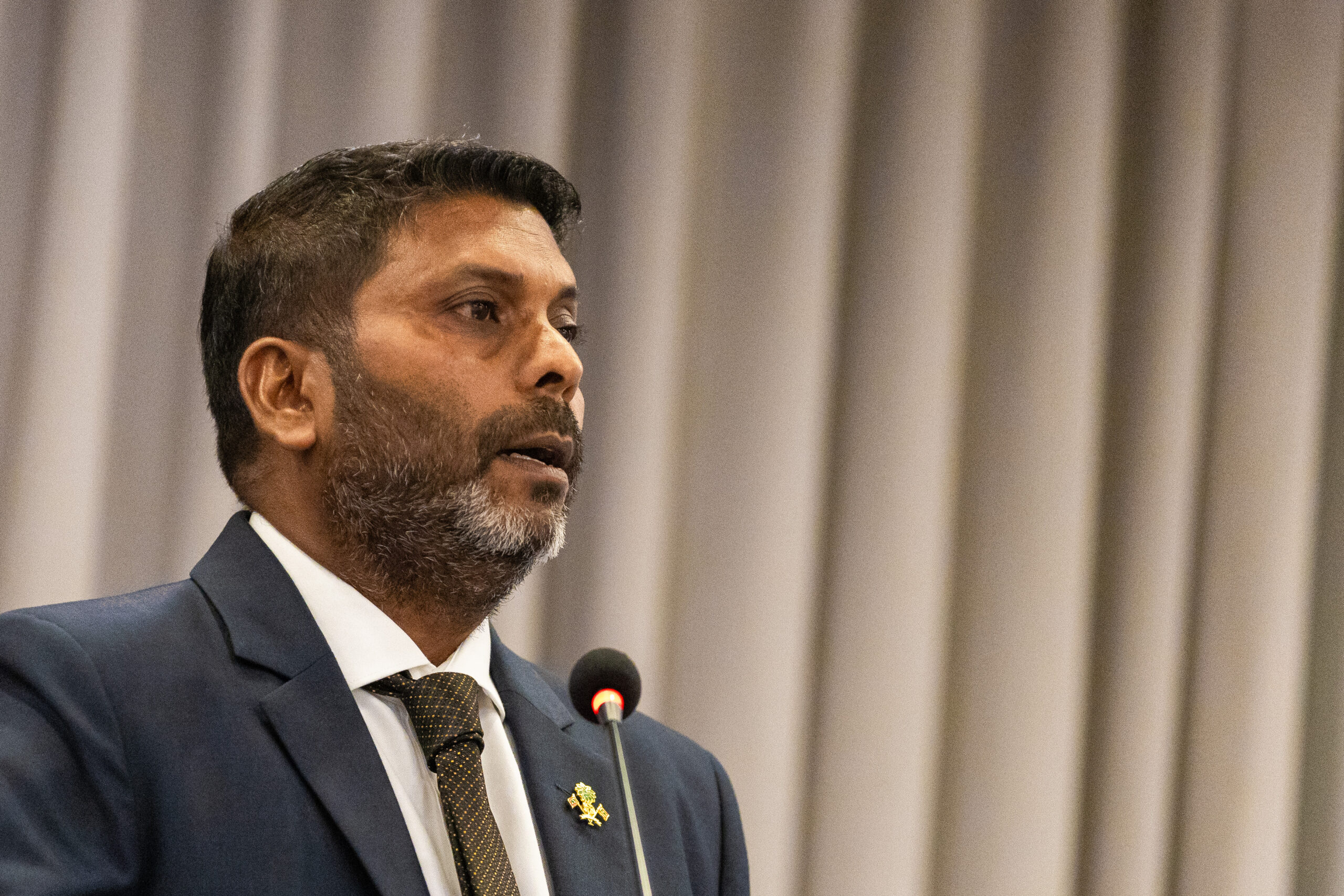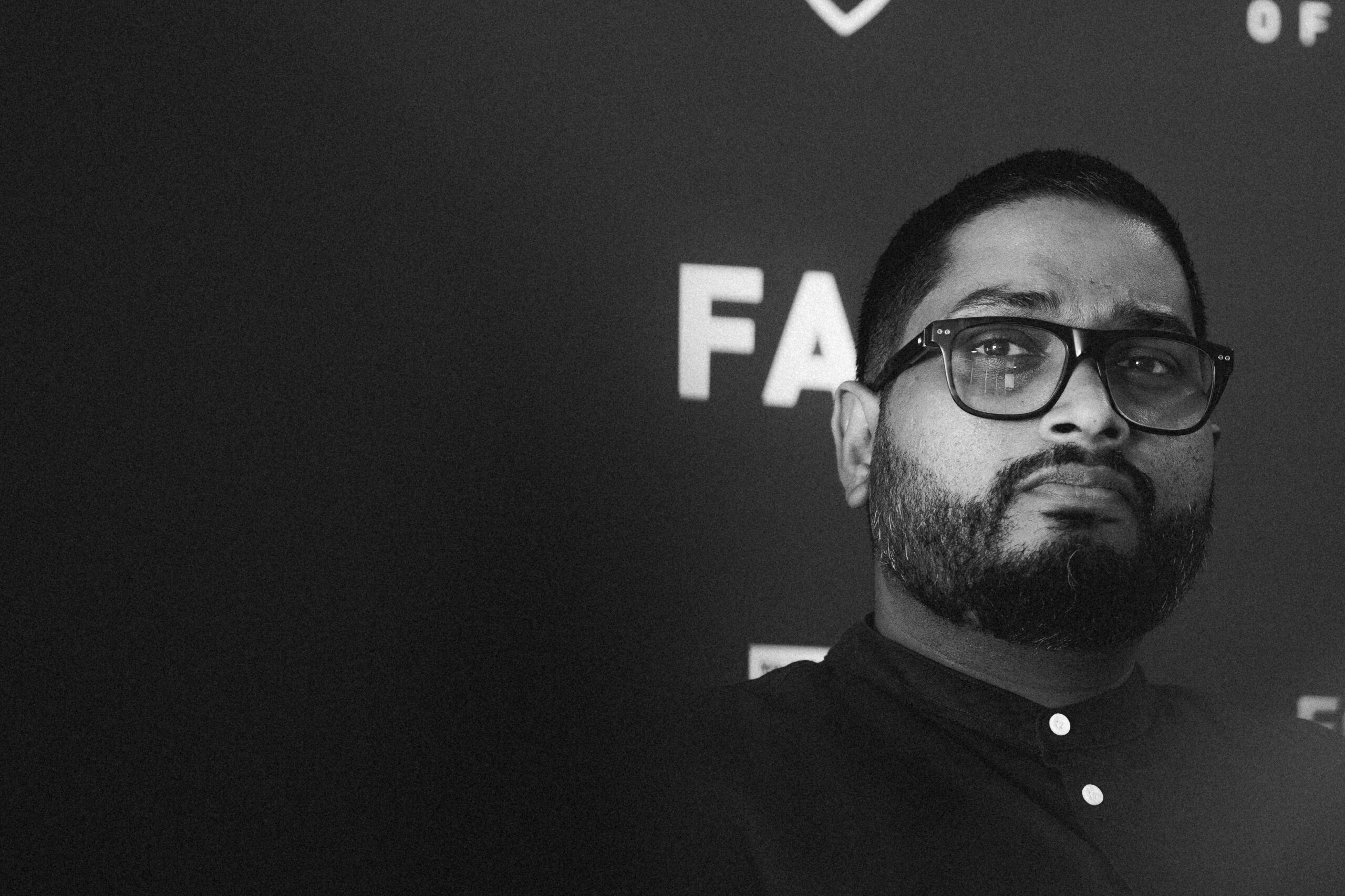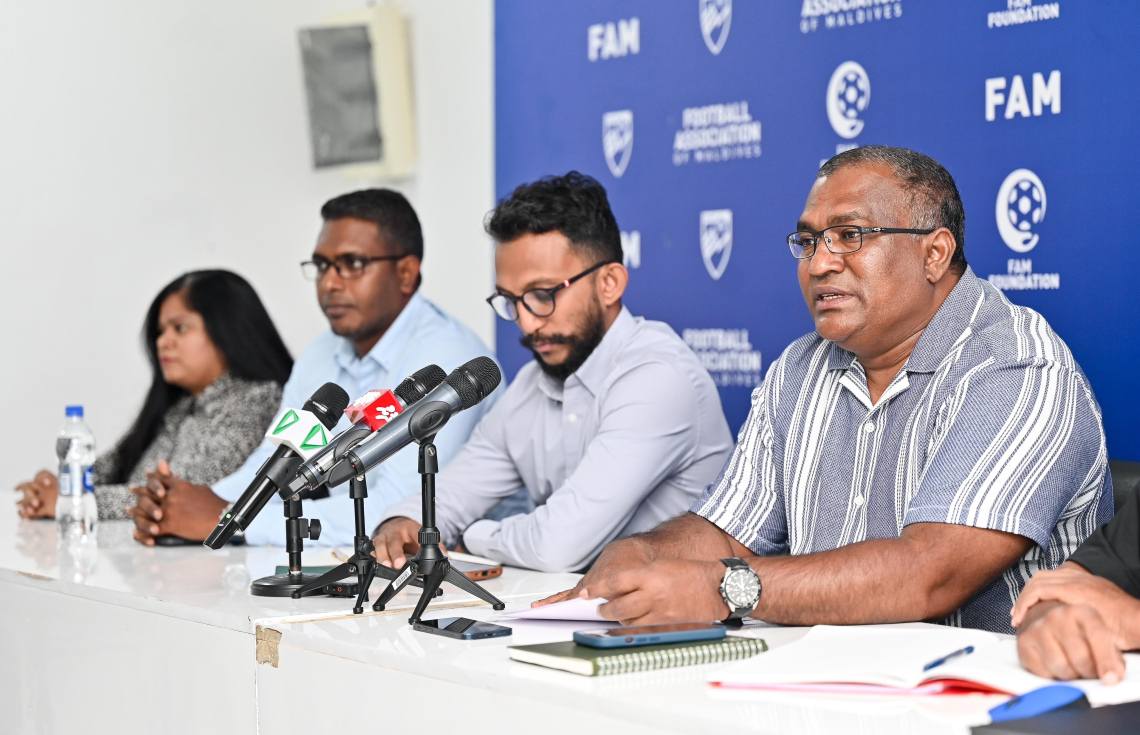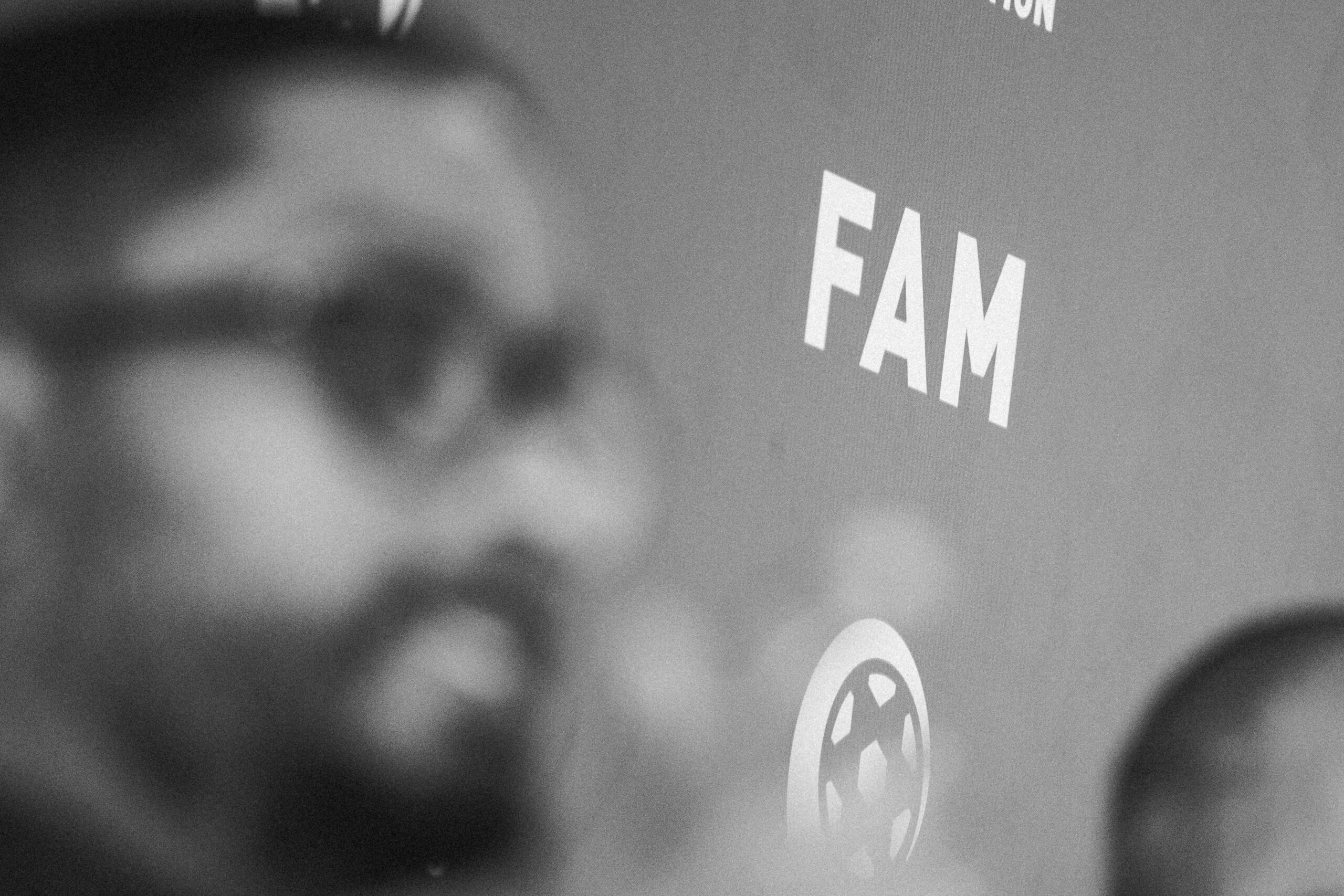“Maldivian football is not in ICU any longer… But it is far from recovered,” stated the Minister of Sports, Fitness, and Recreation, Abdulla Rafiu. The challenges ahead, he said, are not just financial or structural—the football community needs a shift in mentality.
“We (the government) have spent a lot to bring football out of the economic situation. I personally met with teams,” the Minister said. “Just last year, the Ministry had spent over three million on football”, admitted Rafiu.
“The party most directly involved in this is the normalization committee. What the Ministry can do is facilitate the revival.”
Speaking on a PSM broadcast program earlier this week, the Minister laid out what he described as a necessary course correction for football’s future—one that depends heavily on reform, cooperation, and accountability from within the sport itself.
The ball is in the clubs’ court
Responsibility now shifts to the member clubs, said the Minister. “The future of Maldivian football is in their hands. If clubs in fact want to uplift football, it is going to be a pretty easy thing to do.”
Minister addressed the fact that the football season had been postponed, and a pre-season tournament is to be played. He pointed out that the delay was finalized after clubs themselves requested FIFA to do so. “The Ministry is not an institution that organizes and implements tournaments. We will not interfere the management of FAM”.
Delegations of FIFA and the AFC recently visited Malé in March to oversee an extraordinary congress. “This (congress) had not much to do with the election of FAM”, he said “These are the steps taken to move towards that election.”
FAM appoints members to three committees, engages audit firm
Minister highlighted that FAM’s normalization is past its initial phase. The second phase is amending the Articles of Association (AoA) — the constitutional document of the Football Association of Maldives, that defines voting rights and how candidates are nominated.
Currently, top-tier clubs dominate the electoral process, with most holding two votes each. Lower-division clubs are sidelined, especially in the nomination process. As it stands, only a candidate endorsed by three first-division clubs can run for president.
FIFA has proposed a shift: any five clubs, regardless of division, should be able to endorse a candidate. Endorsement power would then be tied directly to voting rights.
The Minister described these changes as “essential,” calling for cooperation among clubs to avoid stagnation.
Another proposed fix is to shorten the waiting period so the so that newly promoted first-division clubs do not have to wait two or three years to earn equal voting rights. Discussions are ongoing, but the message is clear: amendments are necessary if the sport is to progress.
FAM Normalization in Progress, Committee to Operate until July 2025
Avoiding the worst-case scenario
“One of the most unfortunate situations for any sports association is this what we are in—normalization” admitted Rafiu. “Except for suspension, in which case all clubs get dissolved.”
The Minister referenced the case of Pakistan: “They disobeyed FIFA’s proposals, and got suspended. Then they panicked, wanted to revive the sport. So, in my hope is for clubs to reach an agreement, for the sake of football.”
Maldivian football is now in Phase Two of normalization: debating and finalizing the AoA. The final step will be electing a new FAM Executive Committee, including its next president. “Let’s contribute to stepping these stones first” he said.


 Ali Thameem
Ali Thameem









